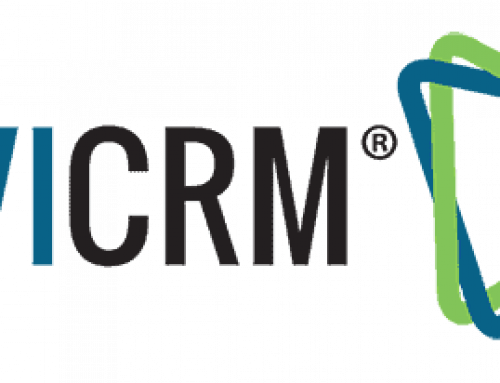Managing day-to-day operations of an NPO can be challenging. Non-profit organizations have tons of constituents to engage in different ways – participants and clients, volunteers and donors, collaborators and funders, directors and members. It can be overwhelming just to keep track of them all, let alone develop coherent communication strategies. Adding a CRM to your information infrastructure plan can really help, and will pay off for years to come.
So what exactly is a CRM? Initiated for use in the private sector, Customer Relationship Management software has been adapted as Constituent Relationship Management for organizations whose constituents are not necessarily customers. Essentially CRMs are software packages that can help with contact management, group communication and marketing.
Contact Management
One of the greatest benefits of a not-for-profit CRM is the management of contacts. Within a CRM, records for clients, funders, donors, volunteers, and other contacts can be stored and organized in one place. The database is seeded with some version of contact/demographic information about each record, and then grows over time as interactions between your organization and the contact are recorded in the file.
Some solutions offer different types of records and the capacity to designate relationships among them (so you can have employee/employer relationships, family relationships, etc.) In addition to relationships, CRMs allow you to create groups and categorize records in various ways. This may not seem revolutionary, however, when applied in a smart way the true power of the CRM as a communication tool shines.
A CRM is an innovative communication tool that is used to engage your contacts, stimulate conversation, and inspire action.
These tools are advantageous for organizing contacts into different stages of engagement. Say you conduct a volunteer outreach campaign, and 100 people respond showing initial interest. Of those, 50 respond to your follow-up email. Now these two groups are separated in the system. Perhaps you could contact those 50 that did not reply the second time during future volunteer outreach for a different event type. With a CRM organizing and managing contacts becomes easy.
Some non-profit CRMs are focused on fundraising and volunteer recruitment processes, but others are broader and also include tools for membership tracking (so you can automate membership reminders, payments and recurring payments) and event management (ticket sales, material distribution, and attendance tracking). As a result, your communication capacity becomes smarter.
Group Communication
Now, you may be wondering why you couldn’t just use your current email or a mass email tool like MailChimp. Well, you can, but with a CRM you can integrate these email communication tools to reflect the actual relationship your organization has with its constituents. For example, a mass mailer already allows you to target

specific groups of people based on demographics or interests. So with a bit of effort you can direct emails about family events to families, or art events to those interested in art.
However, when you integrate a CRM you can combine more filters – for example, sending a sponsorship request for your art event to those interested in art who have donated in the past becomes as easy a few clicks of a button. Or, say you have a casino event coming up and you haven’t filled all the shifts yet (I know, I know, never happens). You can craft a special plea and send it just to current members who have volunteered at a casino sometime in the past. The possibilities only grow as you use the system more and more of your community and history becomes embedded.
Marketing
Implementing a CRM is one of the quickest and easiest ways to begin marketing your NPO. Using a CRM allows you to track email marketing campaigns and newsletters simply and easily. You can determine which strategies are working and those that need improvement. Reach out to volunteers, funders and participants or clients with a click of a button.
Other FAQs
- My non-profit is small. Can I use a CRM?
- Yes, if you have the capacity. CRMs can be beneficial for any size organization. Having your contacts organized in one place is both convenient and advantageous. Cost for CRMs ranges wildly, including free, open-source solutions made specifically for non-profits.
- Should I integrate donor, client and volunteer data or keep separate databases?
- Great question! This is a strategic choice, and should be made thoughtfully. It can be really helpful to have integrated data for those cases when individuals play more than one role with your organization. However, confidentiality concerns and privacy policies may vary based on the type of constituent, and would require distinct solutions. Contact us if you would like to discuss your case and brainstorm some options.
- Great question! This is a strategic choice, and should be made thoughtfully. It can be really helpful to have integrated data for those cases when individuals play more than one role with your organization. However, confidentiality concerns and privacy policies may vary based on the type of constituent, and would require distinct solutions. Contact us if you would like to discuss your case and brainstorm some options.
- What CRM should I use?
- There are many choices! We have compiled a list of our Top 5 CRMs for non-profits on our blog. Find out which one is best for you!








